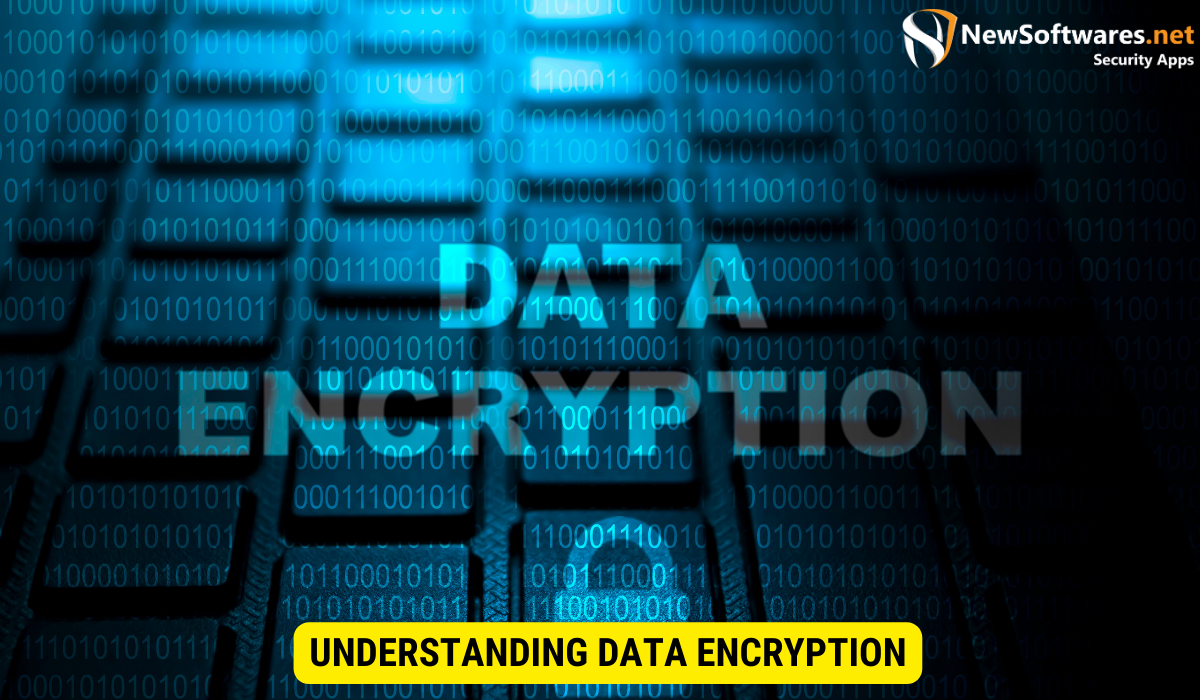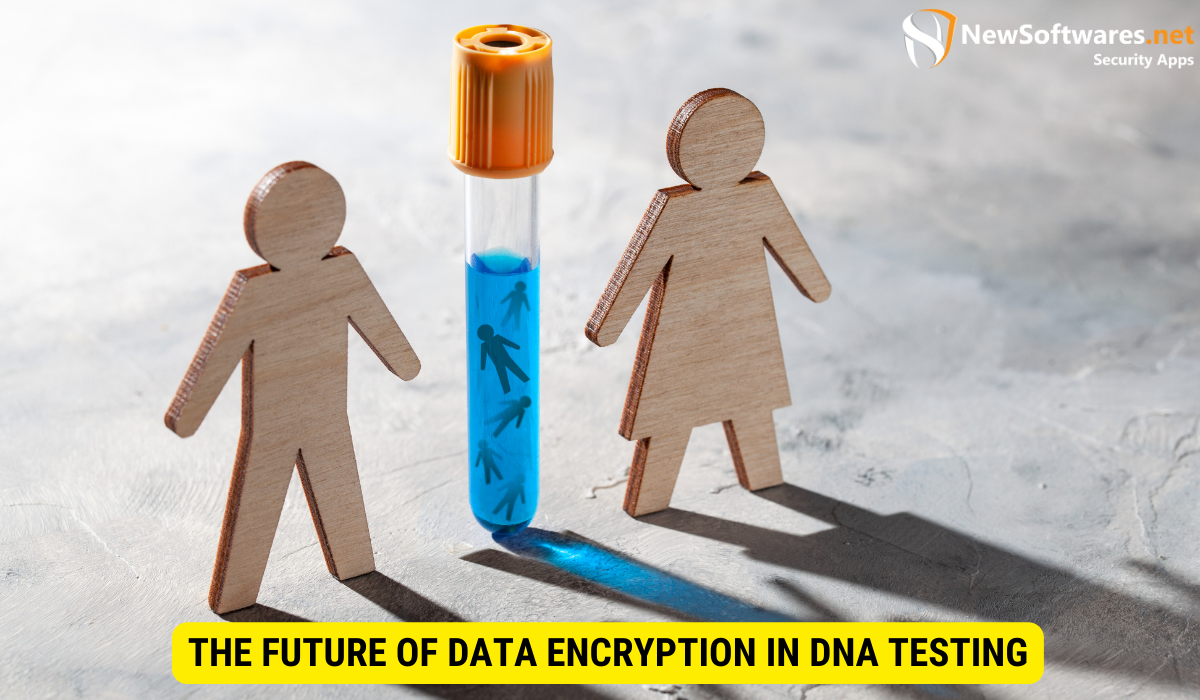Yes, both Ancestry and 23andMe encrypt data to ensure the privacy and security of their users’ sensitive genetic information. They employ strong encryption measures for data in transit and at rest, prioritizing the confidentiality of user data.
In today’s digital age, where privacy and security have become paramount concerns, it is essential to address questions regarding the protection of personal data. DNA testing services, such as Ancestry and 23andMe, have gained popularity in recent years, but many individuals wonder about the security measures in place to safeguard their sensitive information. Together, we will delve into the encryption practices implemented by these two companies and explores the importance of data protection in the context of DNA testing.
Understanding Data Encryption

Data encryption serves as a crucial safeguard against unauthorized access and maintains the confidentiality of sensitive information. In simple terms, encryption is the process of converting data into a format that can only be accessed with a special “key.” This encrypted data is extremely difficult for anyone without the key to decipher, ensuring that sensitive information remains secure even if intercepted during transmission or storage.
Encryption algorithms play a vital role in the protection of data. These algorithms use complex mathematical calculations to transform readable data into an unreadable format, making it virtually impossible for unauthorized individuals to make sense of the information. The encryption process involves rearranging the data, substituting characters, and applying various mathematical operations to create a jumbled mess that can only be unraveled by those with the correct decryption key.
What is Data Encryption?
Data encryption involves mathematical algorithms that transform readable data into an unreadable format, scrambling it to protect it from potential threats. Only authorized users possessing the decryption key can reverse the process and access the original information.
There are different types of encryption algorithms, each with its own strengths and weaknesses. Some commonly used encryption algorithms include Advanced Encryption Standard (AES), Data Encryption Standard (DES), and Rivest Cipher (RC4). These algorithms vary in terms of the key length, encryption speed, and level of security they provide.
Furthermore, data encryption can be implemented at different levels, such as disk encryption, file encryption, or even individual data field encryption. Each level of encryption adds an extra layer of security, ensuring that even if one layer is compromised, the remaining layers remain intact.
Importance of Data Encryption in DNA Testing
When it comes to DNA testing, it is essential to recognize the personal and sensitive nature of the information involved. Test results can reveal valuable insights into one’s heritage, genetic predispositions, and even potential health risks. Hence, protecting this highly personal data with robust encryption mechanisms is crucial to ensure the privacy and security of users.
With the increasing popularity of DNA testing services, the need for data encryption has become more significant than ever. These services collect and store vast amounts of genetic data from individuals worldwide. This genetic information is not only unique to each person but also highly sensitive, as it can potentially expose details about one’s health, ancestry, and even familial relationships.
Implementing strong encryption measures ensures that this sensitive genetic data remains secure and confidential. By encrypting the data, DNA testing companies can minimize the risk of unauthorized access, data breaches, and misuse of personal information. This, in turn, builds trust among users, encouraging them to participate in DNA testing without concerns about their privacy being compromised.
Moreover, data encryption in DNA testing also extends to the transmission of genetic information. When users send their DNA samples to testing laboratories, the data is often transmitted over networks and stored in databases. Encrypting this data during transmission and storage adds an extra layer of protection, making it extremely difficult for hackers or unauthorized individuals to intercept and make sense of the genetic information.
In conclusion, data encryption plays a vital role in safeguarding sensitive information, including DNA test results. By utilizing encryption algorithms and implementing robust security measures, DNA testing companies can ensure the privacy, confidentiality, and integrity of users’ genetic data. This, in turn, promotes trust and encourages individuals to take advantage of the valuable insights that DNA testing can provide.
Ancestry’s Approach to Data Encryption
With over 18 million users, Ancestry is one of the leading DNA testing providers worldwide. Recognizing the significance of data privacy, Ancestry has implemented stringent measures to protect its users’ information.
Ancestry’s Privacy Policy
Ancestry is committed to safeguarding user data and has established a comprehensive privacy policy to ensure transparency and compliance with applicable laws and regulations. It outlines the company’s commitment to protecting user privacy and the measures taken to keep their information secure.
How Ancestry Encrypts User Data?
Ancestry employs state-of-the-art encryption techniques to protect user data at all stages of its transmission and storage. To safeguard data while in transit, the company uses secure HTTPS protocols, ensuring that information is encrypted during all interactions between users and their servers. Additionally, Ancestry stores user data in encrypted form on their servers, further fortifying the security of sensitive information stored within their databases.
23andMe’s Data Encryption Practices
Similar to Ancestry, 23andMe takes the security and privacy of its users’ data seriously. Let’s delve into the measures they have in place to protect sensitive genetic information.
23andMe’s Privacy Measures
23andMe has implemented a comprehensive privacy policy to safeguard user data. They are committed to ensuring transparency and giving users full control over their genetic information. This commitment extends to their data encryption practices, protecting user privacy while delivering personalized genetic insights.
How 23andMe Encrypts User Data?
When it comes to data encryption, 23andMe follows industry best practices to ensure the safety of sensitive genetic data. They employ robust encryption algorithms and secure transmission protocols to protect users’ genetic information both in transit and at rest. By implementing these encryption measures, 23andMe aims to provide a secure environment for customers to explore their genetic ancestry and health insights.
Comparing Ancestry and 23andMe’s Data Encryption
Although both Ancestry and 23andMe prioritize the security of their users’ data, some differences can be observed in their encryption practices.
Similarities in Data Encryption Practices
Both Ancestry and 23andMe ensure that user data is transmitted securely using encryption protocols. They understand the importance of data privacy and work diligently to maintain the confidentiality of their customers’ sensitive information.
Differences in Data Encryption Practices
While the companies share similar security objectives, their specific encryption approaches may differ. Ancestry’s data encryption extends to information stored on their servers, whereas 23andMe’s encryption practices are primarily focused on secure transmission of user data. These differences reflect varied strategies to achieve similar goals, ensuring the privacy and security of user information.
The Future of Data Encryption in DNA Testing

As technology continues to evolve, so too will encryption practices in the field of DNA testing. It is important to stay informed about emerging trends in data encryption to understand how they may impact the security of personal genetic information.
Emerging Trends in Data Encryption
Advancements in encryption technologies are expected to offer enhanced protection for user data. Techniques such as homomorphic encryption, where computations can be performed on encrypted data without decryption, show promise for future implementations in the realm of DNA testing. This would allow users to benefit from analysis and insights while maintaining the highest degree of privacy.
How These Trends Could Impact Ancestry and 23andMe?
As pioneers in the DNA testing industry, Ancestry and 23andMe are likely to adapt and adopt these emerging encryption trends to further strengthen their security practices. By staying at the forefront of data encryption advancements, these companies can continue to provide peace of mind to their users, ensuring that their personal genetic information remains protected.
Key Takeaways
- Data encryption plays a vital role in protecting sensitive genetic information provided to companies like Ancestry and 23andMe.
- Ancestry and 23andMe both prioritize user privacy and employ encryption practices to enhance data security.
- While Ancestry focuses on encrypting stored data, 23andMe emphasizes secure data transmission.
- Emerging trends indicate the potential for even stronger encryption methods, ensuring the privacy and security of user data in the future.
FAQs
Q1: Why is data encryption necessary for DNA testing services?
A: DNA test results contain highly personal and sensitive information. Encrypting data helps prevent unauthorized access and ensures the privacy and security of this valuable data.
Q2: How does encryption work in DNA testing?
A: Encryption converts data into an unreadable format using mathematical algorithms. This encrypted data can only be decrypted and accessed by authorized users with the appropriate decryption key.
Q3: Are Ancestry and 23andMe’s encryption practices secure?
A: Yes, both Ancestry and 23andMe employ strong encryption techniques to protect user data. They prioritize the privacy and security of their users’ sensitive genetic information.
Q4: Will data encryption in DNA testing continue to improve?
A: Yes, as technology advances, encryption methods are likely to become even more robust, offering increased protection for personal genetic information.
Conclusion
Both Ancestry and 23andMe understand the significance of data privacy and employ robust encryption measures to protect their users’ sensitive genetic information. By implementing sophisticated encryption techniques and staying abreast of emerging trends, these companies continue to foster trust and provide secure platforms for individuals to explore their ancestral roots and uncover valuable health insights.
